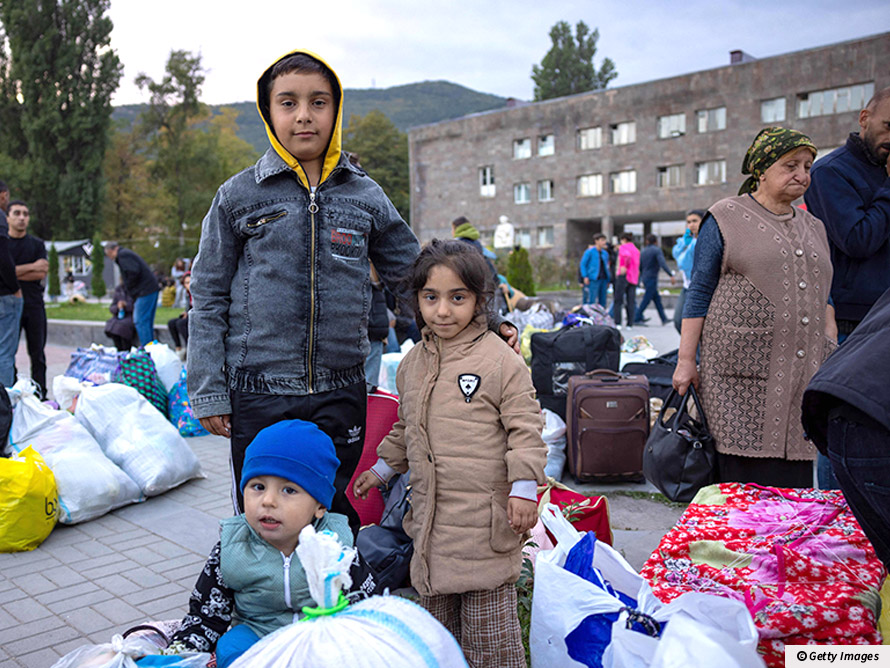Is world peace possible? A hundred thousand people have fled their homes. Everywhere we look there is more conflict. Some think a peaceful world has never looked more remote.
An invasion. Bombs. Over 100,000 new refugees

Glossary
Armenian - Armenia is a former Soviet republic in the Caucasus region between Asia and Europe.
Civilians - People who are not in the army or the police.
Nagorno-Karabakh - A mountainous region of the South Caucasus. The area is disputed by Azerbaijan and Armenia.
Ethnic cleansing - The systematic forced removal from one area or killing of an ethnic group, with the aim of creating a region that is ethnically homogeneous.
Azerbaijan - A former Soviet Republic between the Caspian Sea and Caucasus mountains.
Atrocities - Terrible things.
Incursions - Sudden or brief invasions.
Democracy - A system of government based on the idea of rule by the people.
